
Influenza, or the flu, spreads easily and infects millions of people every year. Health experts stress the importance of getting a flu shot annually to guard against the virus and its complications. This article highlights why the flu vaccine is vital for people of all ages, how effective it is, and the key role it plays in safeguarding community health.
Understanding Influenza
Influenza is a viral infection that affects the respiratory system, including the nose, throat, and lungs. Its symptoms often include fever, body aches, fatigue, sore throat, and cough. The flu presents serious risks, especially for young children, older adults, pregnant individuals, and people with weakened immune systems. Each year, millions of people worldwide experience flu infections, but vaccination can significantly reduce the likelihood of falling ill.
Why the Flu Shot Matters
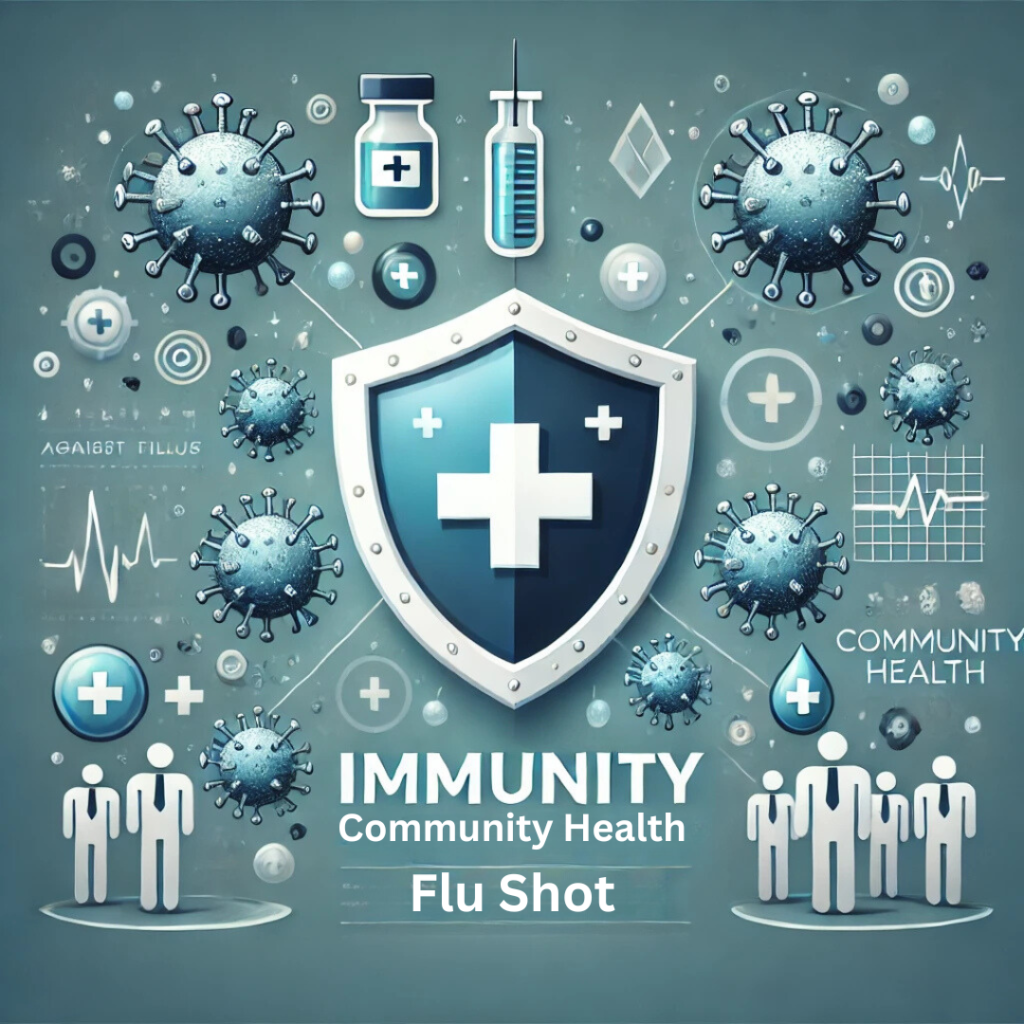
Each year, health experts design the flu shot to target the most common strains of the influenza virus expected to circulate during the upcoming season. Because the flu virus mutates rapidly, immunity from previous years often fails to protect against new strains. For this reason, experts strongly urge everyone to get vaccinated annually.
The flu shot trains your immune system to recognize and fight the virus more effectively. It not only shields you from severe complications, such as pneumonia and hospitalization, but also helps reduce the spread of the flu in the community. This is especially important for protecting individuals most vulnerable to severe illness, including older adults, young children, pregnant individuals, and those with chronic health conditions.
In addition to protecting individuals, the flu vaccine significantly lowers the likelihood of serious illness across the population. This is particularly vital for high-risk groups. By getting vaccinated, you actively safeguard both yourself and the broader community from the widespread impacts of influenza.
Learn more about the benefits of the flu vaccine from the CDC.
Who Should Get Vaccinated?
The Centers for Disease Control and Prevention (CDC) strongly recommends that everyone older than six months get a flu shot each year. Some groups face a significantly higher risk of severe flu symptoms, including older adults, children under five, pregnant individuals, and people with chronic health conditions.
For these high-risk groups, the flu vaccine is essential in lowering the chances of severe complications, such as hospitalization or pneumonia. Widespread vaccination not only protects these vulnerable individuals but also strengthens community health by reducing the spread of the virus.
Read more
How Effective is the Flu Shot?
The flu shot’s effectiveness changes yearly, depending on how well the vaccine aligns with the circulating flu strains. On average, it reduces the risk of flu illness by 40-60%. While no vaccine offers complete protection, the flu shot significantly lowers the severity of symptoms for those who contract the flu despite being vaccinated.
Vaccination not only protects individuals from severe complications, such as hospitalization, but also helps reduce flu-related admissions to healthcare facilities. This dual benefit eases the burden on healthcare systems, highlighting the flu shot’s critical role in supporting both personal and public health.
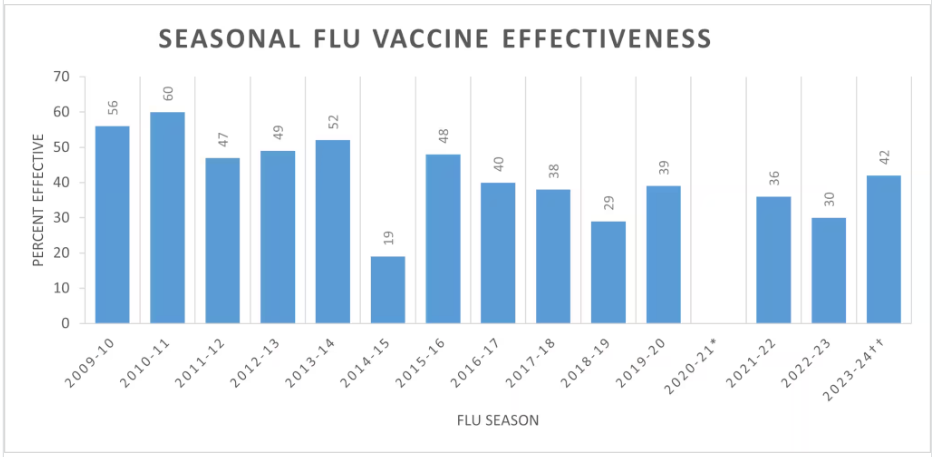
A line chart illustrating the effectiveness of the seasonal flu vaccine from 2009 to 2024. The chart highlights yearly trends in protection rates against circulating flu strains, showing fluctuations based on how well the vaccine matched the prevalent strains each season. Data sourced from the Centers for Disease Control and Prevention ( CDC ).
Common Myths About the Flu Shot
Misunderstandings about the flu shot often discourage individuals from getting vaccinated, despite its proven benefits. One of the most persistent myths claims that the flu vaccine can give you the flu. This is entirely false. The vaccine contains either inactive virus particles or proteins, which cannot cause infection. Instead, it equips your immune system to recognize and combat the flu more effectively.
Another widespread misconception is that healthy individuals don’t need the vaccine. In truth, everyone benefits from getting a flu shot. Healthy people play a crucial role in protecting their communities by reducing the spread of the virus. This protection is especially vital for those more vulnerable to severe illness, such as older adults, young children, and individuals with chronic health conditions.
Flu Shot Side Effects
The flu vaccine is considered very safe and typically causes only mild, temporary side effects. Common reactions include soreness or slight redness at the injection site and a mild fever. These symptoms are a normal response, showing that your body is building immunity against the virus.
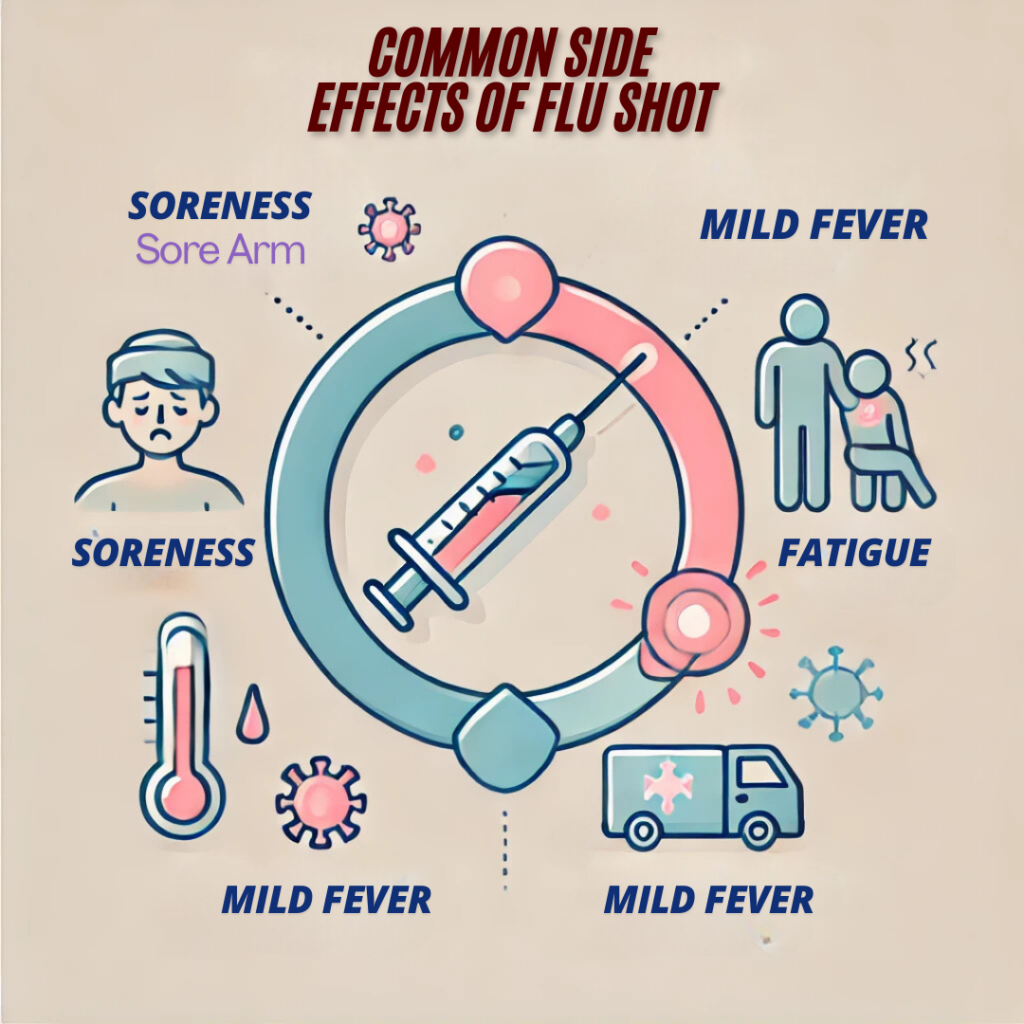
If you experience any of these side effects, rest assured that they usually subside within a few days. They are significantly less severe than the potential complications caused by the flu itself. The benefits of getting vaccinated far outweigh the minor discomfort it might cause, making the flu shot a crucial step in protecting your health.
Where and When to Get Vaccinated
Getting a flu shot every year is crucial, especially before the flu season begins in the fall. Flu vaccines typically become available in late summer and early fall at various locations, including pharmacies, healthcare clinics, doctor’s offices, and community centers. Many workplaces also organize flu vaccine clinics, offering employees an easy and convenient way to get vaccinated.
If you’re unsure where to find a flu vaccine, check with local pharmacies like Walgreens or CVS. You can also consult your healthcare provider for guidance or to address any concerns you may have about vaccination.
The Flu Vaccine’s Role in Community Health
The flu vaccine’s impact extends beyond individual protection—it plays a critical role in promoting community health. When more people get vaccinated, the spread of the virus slows, protecting those who are more vulnerable. These include individuals unable to receive the vaccine or those with weaker immune responses.
This collective protection, known as herd immunity, is essential for managing flu outbreaks and ensuring public health safety. By getting vaccinated, you not only protect yourself but also contribute to a healthier and more resilient community.
Conclusion
Getting a flu shot is a straightforward yet effective way to protect yourself and those around you from influenza. Health experts consistently emphasize the importance of annual vaccination to prevent severe complications, reduce virus transmission, and save lives. Don’t wait for flu season to peak—schedule your flu vaccine today to take control of your health and support your community.
Take action now: Get vaccinated and safeguard yourself, your loved ones, and your community from the flu.

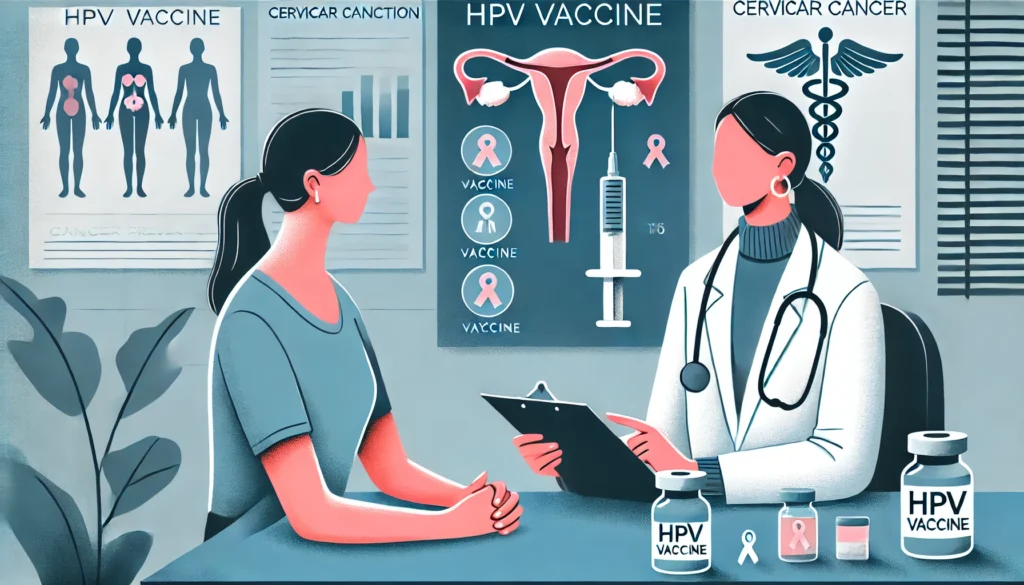
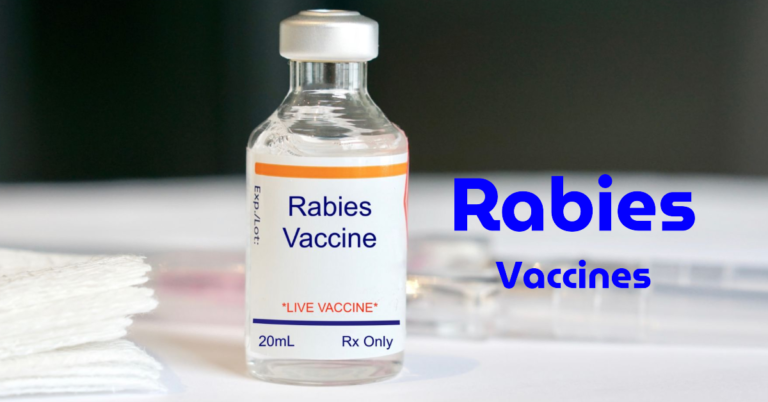
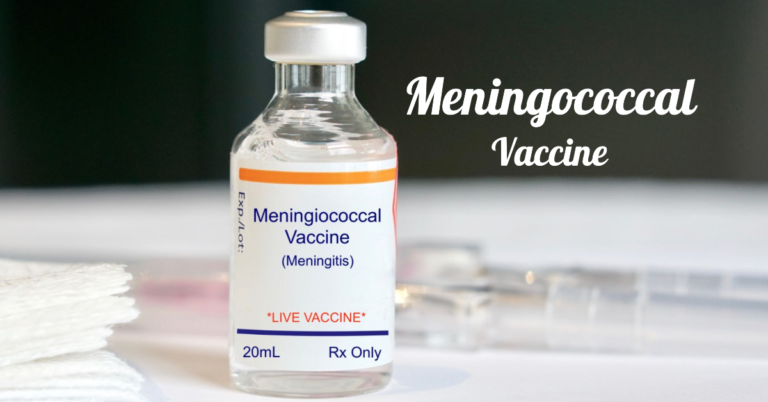

[…] For strategies to protect yourself during outbreaks, read our article on Managing Seasonal Outbreaks. […]